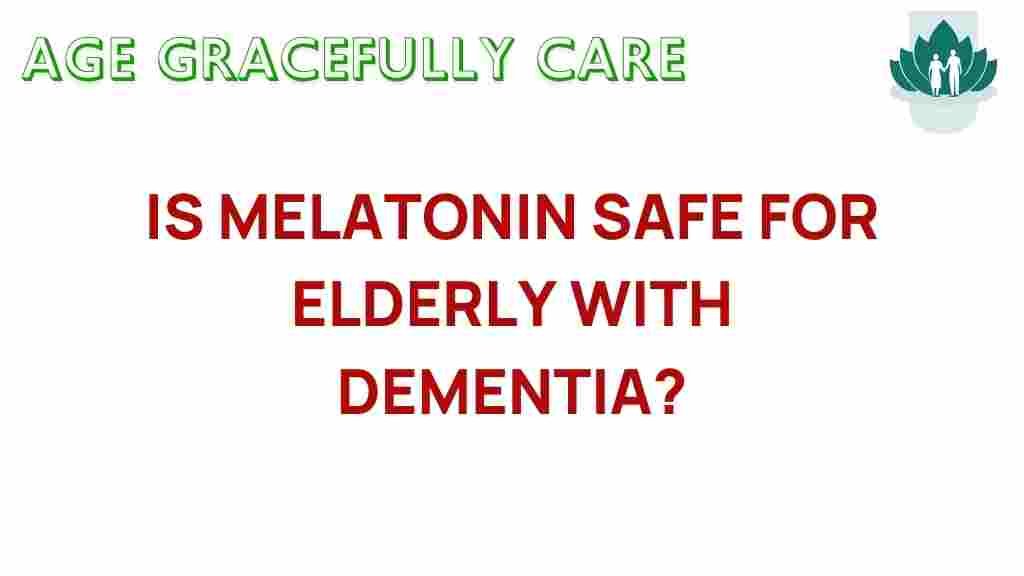Exploring the Safety of Melatonin for Seniors with Dementia
As our population ages, the prevalence of dementia among the elderly is increasing. Many seniors with dementia face challenges related to sleep, including insomnia. In such cases, sleep aids like melatonin have emerged as potential treatment options. However, the safety and efficacy of melatonin for seniors, particularly those with dementia, are critical topics that require careful exploration.
Understanding Melatonin and Its Role as a Sleep Aid
Melatonin is a hormone produced by the pineal gland in the brain, primarily responsible for regulating sleep-wake cycles. As a natural sleep aid, melatonin supplements are often used to address various sleep disorders, including insomnia.
For the elderly, melatonin can be particularly appealing due to its natural origin and relatively low risk of addiction compared to traditional sleep medications. However, it is essential to consider how melatonin interacts with dementia and the potential health risks involved.
The Link Between Dementia and Sleep Issues
Dementia can significantly impact sleep patterns, leading to:
- Difficulty falling asleep
- Frequent awakenings during the night
- Changes in sleep architecture
- Daytime sleepiness
These sleep disturbances can exacerbate cognitive decline and negatively affect the quality of life for seniors with dementia. As such, effective treatment options are necessary to manage these sleep issues.
Melatonin’s Safety Profile for the Elderly
When considering melatonin for the elderly, especially those with dementia, several factors must be assessed:
- Dosage: The appropriate dosage for seniors may differ from younger adults. Low doses (0.5 mg to 3 mg) are often recommended to minimize side effects.
- Interactions: Melatonin can interact with other medications commonly prescribed to seniors, including anticoagulants, immunosuppressants, and medications for diabetes.
- Health Risks: Potential side effects include dizziness, daytime drowsiness, and mood changes, which can be particularly concerning for individuals with dementia.
Evaluating Cognitive Function and Health Risks
Research on the effects of melatonin on cognitive function in seniors with dementia is still emerging. Some studies suggest that melatonin may have neuroprotective properties, while others raise concerns about its effects on cognitive decline. Key points to consider include:
- Potential Benefits: Some evidence indicates that melatonin may help improve sleep quality, which can lead to better cognitive function in the elderly.
- Risks of Overuse: Excessive use of melatonin can lead to confusion, disorientation, and increased risk of falls, particularly in seniors.
Step-by-Step Process: Using Melatonin Safely
If you are considering melatonin as a sleep aid for a senior with dementia, follow these steps:
- Consult a Healthcare Provider: Before starting melatonin, it is essential to discuss it with a healthcare professional who understands the individual’s medical history and current medications.
- Start with a Low Dose: Begin with the lowest effective dose to gauge tolerance and effect.
- Monitor Effects: Keep track of any changes in sleep patterns, mood, or cognitive function. Adjust the dosage if necessary, under medical supervision.
- Review Regularly: Regular follow-ups with the healthcare provider are important to assess the effectiveness and safety of melatonin therapy.
Troubleshooting Tips for Sleep Issues
In addition to melatonin, consider these troubleshooting tips to help manage sleep issues in seniors with dementia:
- Establish a Routine: Create a consistent sleep schedule to help regulate the body’s internal clock.
- Optimize Sleep Environment: Ensure the bedroom is conducive to sleep—dark, quiet, and cool.
- Limit Stimulants: Avoid caffeine and nicotine in the hours leading up to bedtime.
- Promote Relaxation: Engage in calming activities before bed, such as reading or gentle stretching.
Alternative Treatment Options
If melatonin is not suitable or effective, there are other treatment options for managing insomnia in seniors with dementia:
- Cognitive Behavioral Therapy for Insomnia (CBT-I): This evidence-based therapy can help modify behaviors and thoughts that contribute to sleep problems.
- Other Natural Remedies: Herbal supplements such as valerian root or chamomile may also promote relaxation and better sleep.
- Medication Review: Sometimes, optimizing other medications can improve sleep quality.
Conclusion
Melatonin presents a promising option for addressing sleep issues in the elderly, particularly those with dementia. However, its use must be approached with caution due to potential health risks and interactions with other medications. By consulting healthcare providers, starting with low doses, and monitoring effects, seniors can safely explore melatonin as a sleep aid.
Ultimately, ensuring quality sleep is crucial for maintaining cognitive function and overall well-being in seniors. For more information on sleep aids and treatment options, check out this comprehensive guide. Additionally, for resources on dementia care, visit DementiaSociety.org.
This article is in the category Health and created by AgeGracefullyCare Team
